Tags :: All Things Star Wars
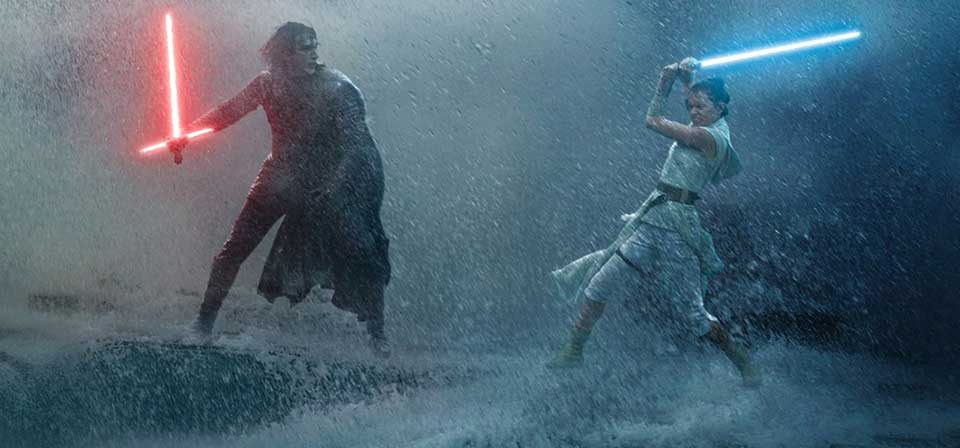
Star Wars: Episode IX – The Rise of Skywalker (2019)
Let’s face it, they could play John Williams’ ominous “Imperial March” over scenes of Uncle Deadly from the Muppets lobbing Green Goblin pumpkin-bombs at Scrat the saber-squirrel (I mean, they literally could, legally, and you could watch it on Disney+ forever and ever), and many of us would still feel emotions stir.
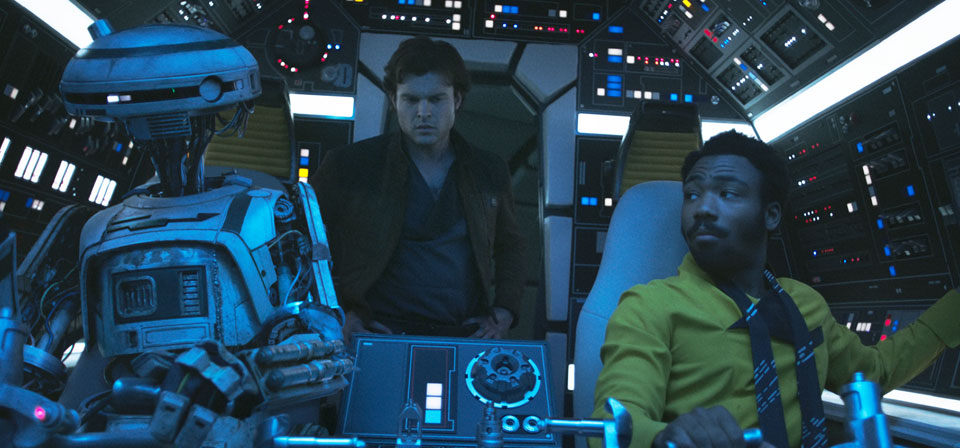
Solo: A Star Wars Story (2018)
Watching Disney’s Rogue One and Solo, the two stand-alone “Star Wars Story” movies that come without episode numbers and opening crawls, is a little like watching the legendary Dutch boy trying to plug the leaks in the dike with his fingers … as new leaks burst all around him.
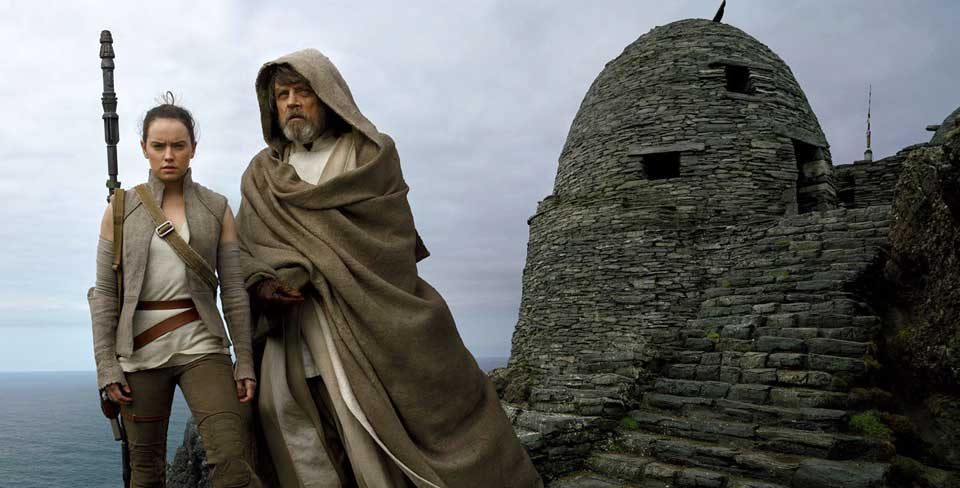
Star Wars: Episode VIII: The Last Jedi (2017)
Star Wars: Episode VIII — The Last Jedi is a strange beast: a swashbuckling action movie that is deeply skeptical of derring-do; a middle movie that works better as riff and commentary on the original source material than as a sequel to its immediate predecessor.
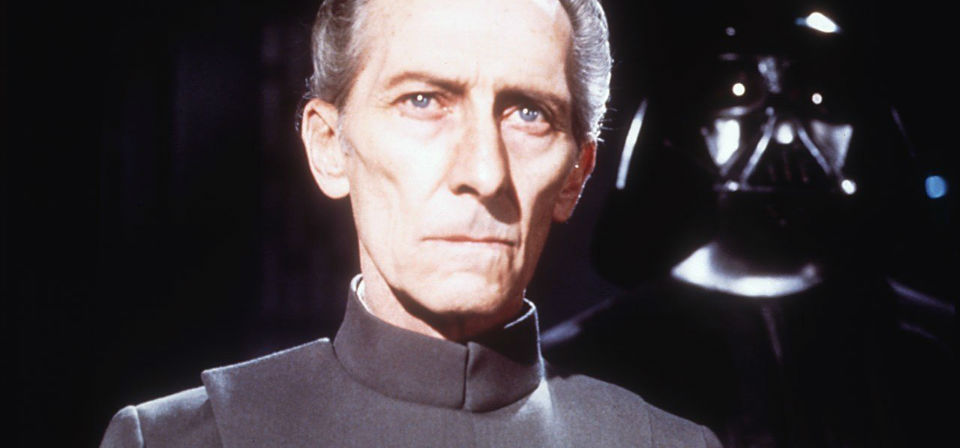
John Paul the Great professor defends Rogue One
Thomas P. Harmon, professor of theology and culture at John Paul the Great Catholic University, has written a thoughtful essay for Catholic World Report responding to my critique of the moral murkiness of Rogue One: A Star Wars Story.
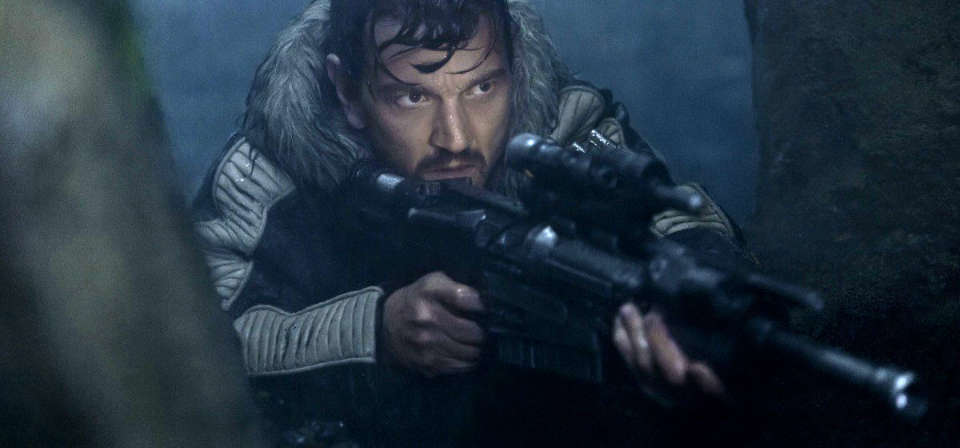
What we lose when Star Wars goes to the Dark Side
Even features come with trade-offs, and the Marvelization of Star Wars is no exception. This might not be as clear in The Force Awakens — about as pure a work of nostalgia and homage as can possibly be contrived short of a shot-for-shot remake — as it is in Rogue One, where the Marvel-style engineering is more obvious.
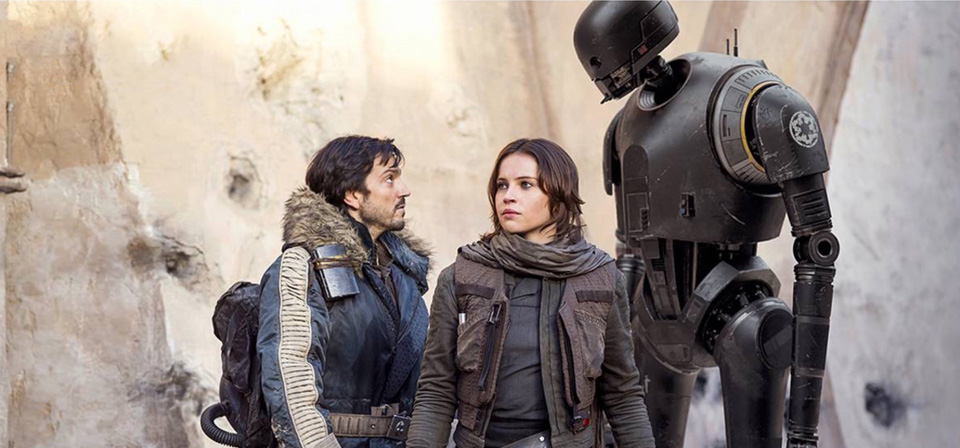
Rogue One: A Star Wars Story (2016)
All this raises a question: When is a Star Wars movie not a Star Wars movie?
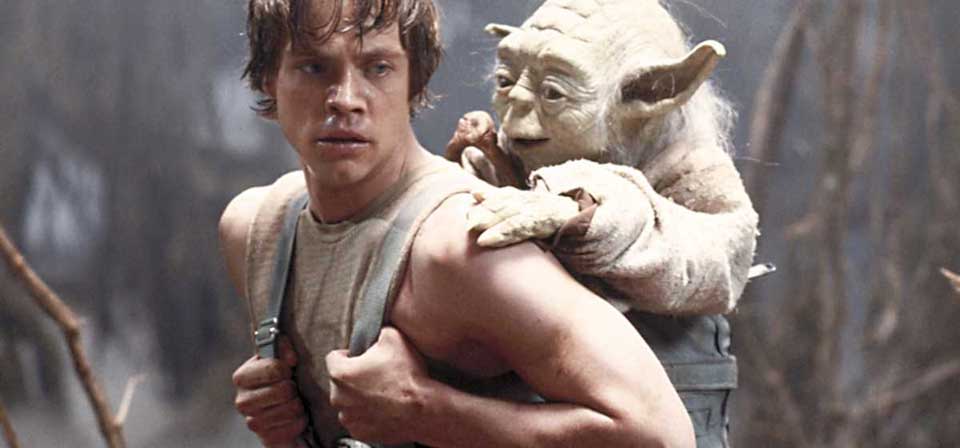
Is Star Wars Gnostic?
Is the Star Wars mythos Gnostic? If so, how Gnostic is it? The question is complicated by confusion over exactly what Gnosticism is.
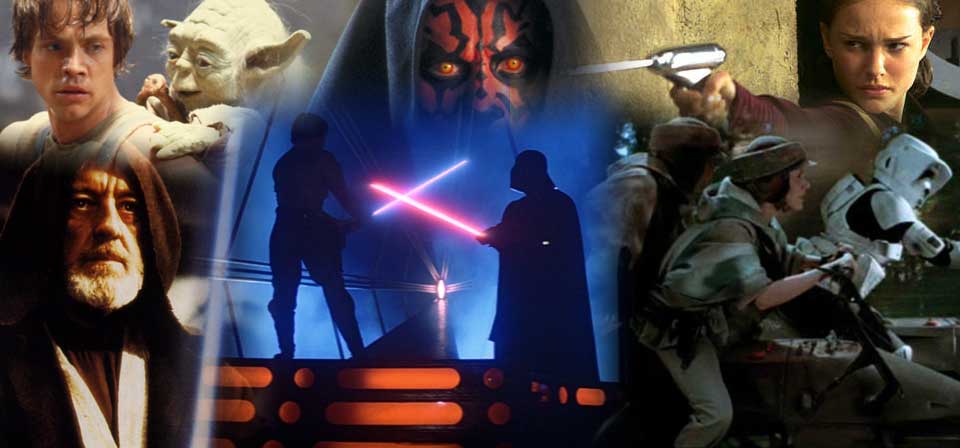
The myth and magic of Star Wars:
Is it over?
By the most empirical of measures, it doesn’t look like anything can kill Star Wars. From another angle, one could equally ask: At this late date, can anything revive Star Wars?
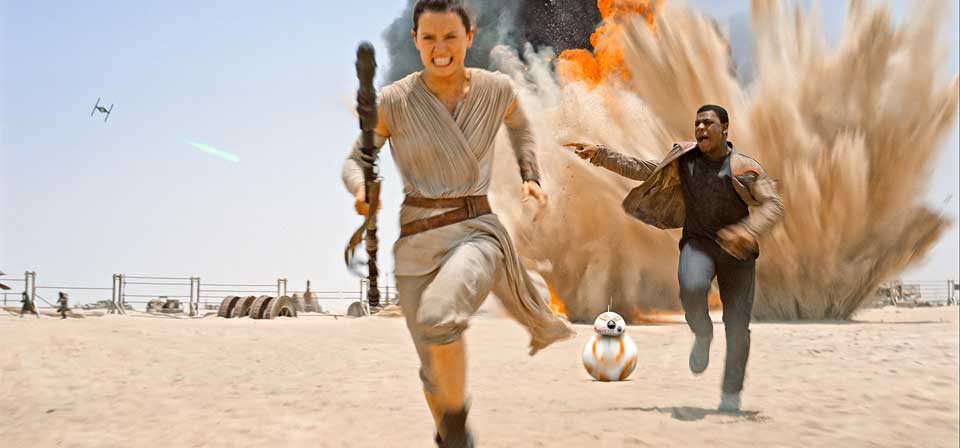
Star Wars: Episode VII – The Force Awakens (2015)
I smiled and laughed through much of the film. Why don’t I love it more? Why did The Force Awakens make almost no lasting impression on me?
“Nooooooooooooooo!”
Tomorrow Star Wars finally comes to Blu-ray in three editions: The Original Trilogy, The Prequel Trilogy, and The Complete Saga. Good news for Star Wars fans, right? If you’re a Star Wars fan, though, you may already know—or, if you didn’t know, you might have guessed—that George Lucas wouldn’t be content to release the same old twice-retweaked versions of the films released on DVD in 2004.
Harry Potter’s Empire Strikes Back? Don’t Make Me Laugh
12 reasons why Deathly Hallows: Part 1 is no Empire Strikes Back … or even The Two Towers.
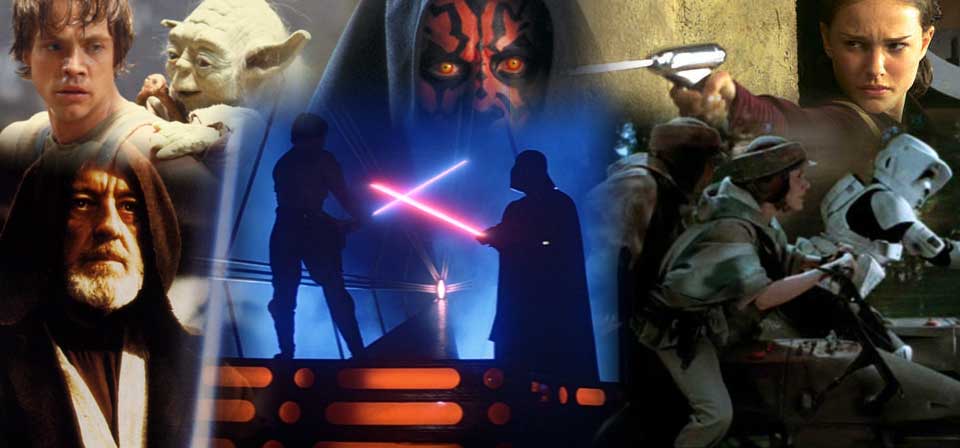
An American mythology: Why Star Wars still matters
Star Wars is pop mythology — a "McMyth," as a recent critical article put it — but in our McCulture even a McMyth can be vastly preferable to no myth at all, and certainly to other, less wholesome mythologies (e.g., the Matrix trilogy). Even for those who generally prefer more traditional fare, there is still much to enjoy and appreciate in these half-baked, stunningly mounted fantasies of good and evil in a galaxy far, far away.
Star Wars: Episode II - Attack of the Clones (2002)
It doesn’t help that this is now the second Star Wars movie in a row in which the "wars" alluded to in the series title are still basically in the future (one climactic skirmish aside). Lucas should never have gotten bogged down in political debate, let alone given two whole films of it.
Star Wars: Episode I - The Phantom Menace (1999)
It’s not just that the banter and camaraderie of Luke and Han and Leia was so much more fun than the often wearying interactions of Anakin and Amidala and young Obi-Wan — though that’s part of it. More importantly, the stories themselves largely lack the strong center of good versus evil that was the heart of the original trilogy.
Star Wars: Episode III – Revenge of the Sith (2005)
Crippled as he is by the decisions of the first two films, Lucas still manages to invest the final chapter of his sprawling space opera with the grandly operatic spirit of the original trilogy. It’s still cornball, yes, and with all the usual weaknesses. But Episode III at last has heart.
Star Wars [Episode IV – A New Hope] (1977)
An orphaned hero. An imprisoned princess. A wise old hermit. A magic sword. A fearsome dark lord. Such conventions are the stuff of myth and romance — yet, inexplicably, the first Hollywood film to give these mythic archetypes their due was not some Arthurian romance or epic costume drama.
Star Wars: Episode VI – Return of the Jedi (1983)
Thematically, where the first Star Wars movie offered a simple vision of good triumphing over evil, and The Empire Strikes Back expressed the problem of evil and the necessity of sacrifice, Return of the Jedi tackles nothing less than resisting temptation, compassion for enemies, and the possibility of redemption for even the most evil.
The Star Wars Films: Moral and Spiritual Issues
(Written by Jimmy Akin) Moral and spiritual issues raised by the Star Wars phenomenon range from the problem of where to draw the line on Star Wars tie-in products all the way to the theological problems associated with the concept of "the Force."
Star Wars: Episode V – The Empire Strikes Back (1980)
The Empire Strikes Back is the backbone of the Star Wars saga. It takes the story and themes of the first film into deeper waters.
Star Wars [Episode IV – A New Hope] (1977)
(Review by Jimmy Akin) Like earlier pulp films, Star Wars draws on mythic and fairy-tale archetypes: a young orphan-hero; a mysterious wizard-mentor; a fearsome dark lord; a magical sword; a princess held prisoner; a gallant rescue mission. Yet on a deeper level, Star Wars is more convincing as a myth or fairy tale in its own right.
Star Wars: Episode V – The Empire Strikes Back (1980)
(Review by Jimmy Akin) In the process of adding new depth to familiar subjects, the film often takes unexpected turns. One of the subtlest of these — so subtle that it tends not to be noticed by the audience — involves the mythic dimensions of Luke’s transformation from backwater farmboy to mystical adept.
Star Wars: Episode VI – Return of the Jedi (1983)
(Review by Jimmy Akin) In the end, Star Wars reveals itself to be not just the most ambitious science-fiction epic brought to the big screen but a story expressing the importance of family and love, the danger of moral corruption, and the possibility moral redemption.
Recent
- Benoit Blanc goes to church: Mysteries and faith in Wake Up Dead Man
- Are there too many Jesus movies?
- Antidote to the digital revolution: Carlo Acutis: Roadmap to Reality
- “Not I, But God”: Interview with Carlo Acutis: Roadmap to Reality director Tim Moriarty
- Gunn’s Superman is silly and sincere, and that’s good. It could be smarter.
Home Video
Copyright © 2000– Steven D. Greydanus. All rights reserved.